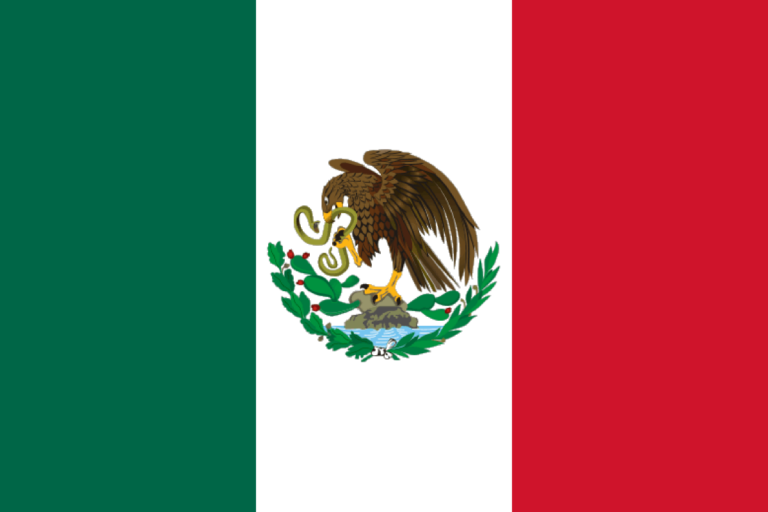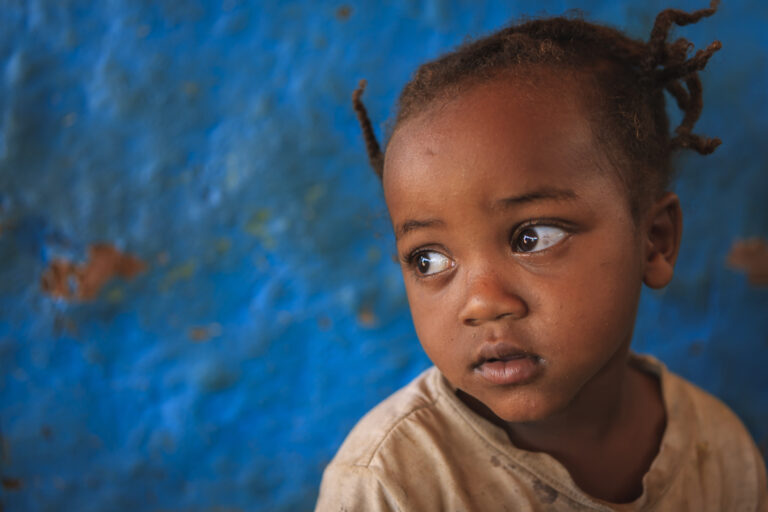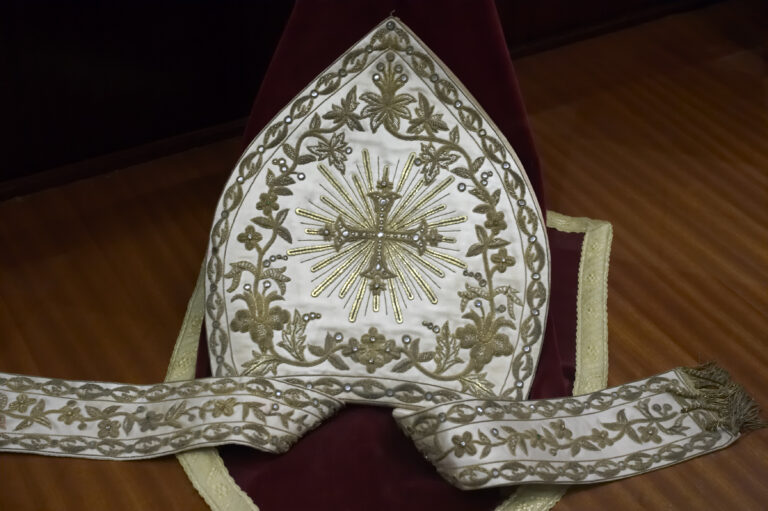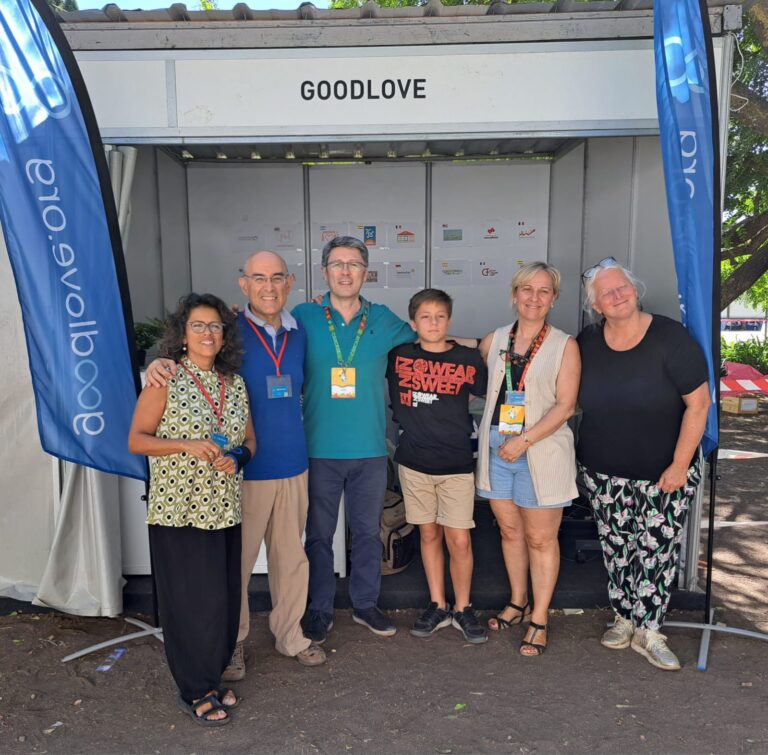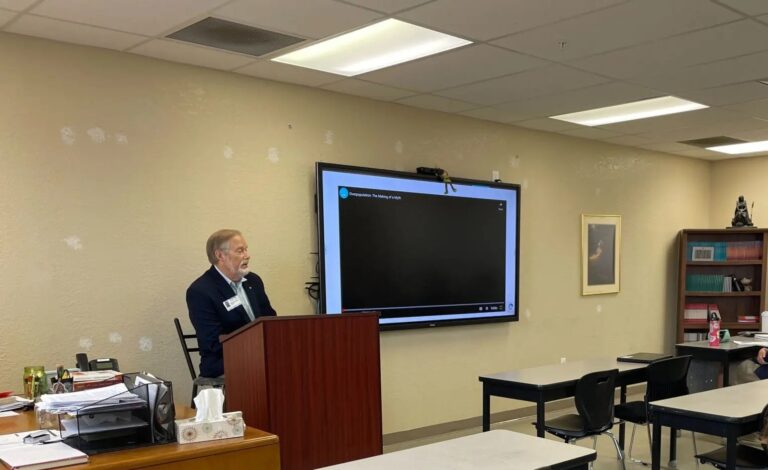[Editor’s note: The UNFPA is the largest purveyor of population control in the world, and has a dismal record on human rights. PRI was concerned about actions taken by the UNFPA against the captive Kosovar refugee population, and sent Austin Ruse of C-FAM to investigate.]
Crisis Update
In the fall of 1998, a tiny stream of Kosovar refugees began crossing the Albanian border to camp in hastily built refugee settings in northern Albania. By the end of March 1999 the stream of refugees, running from NATO bombings and Serbian atrocities, grew into a raging river. To date, roughly 800,000 Kosovars have crossed their own borders, the vast majority camping among their estranged ethnic cousins in Albania.
In the early days of the flood, the refugees caught the world flat-footed. Tents, food and medicine were not ready. Relief agencies, both public and private from dozens of countries, moved quickly to help the Kosovars. One of the oddest responses came from the United Nations Population Fund (UNFPA) which announced on 8 April that, in cooperation with the world’s largest abortion provider, International Planned Parenthood Federation (IPPF), they were sending “reproductive health kits, including equipment for safe deliveries and emergency contraceptives” to last for up to six months. Included in one of the subkits is a “manual vacuum aspirator,” which is used for early term abortions.
Partners in Crime
The Albania into which the Kosovar refugees entered has long been under the sway of aggressive population control programs. By the fall of Yugoslavia’s oppressive communist regime in the early 1990’s, the Albanian birth rate had fallen to 2.44 children per woman. Added to the double misfortune of being targeted by the Serbs, then coming under the NATO bombing campaign, the Kosovars have also provoked the wrath of population control agencies by having the highest fertility rate in Europe. What concerned pro-family human rights workers was whether this now captive population of Kosovar refugees would fall under a combined anti-natal campaign of the aggressive Albanian government, UNFPA, the US Agency for International Development (USAID), International Planned Parenthood Federation and other non-governmental organizations, such as London-based Marie Stopes International, which has long been active in Albania.
UNFPA claims that they never impose themselves on any country without an invitation. UNFPA head of external communications, Stirling Scruggs, says UNFPA was invited by Slobodan Milosevic to conduct a ‘reproductive health’ “needs assessment” among the Kosovars.1 Scruggs says UNFPA will follow up this study with regular programs in Kosovo in coming months.
Rape, Oppression, Promiscuity?
Upon investigation of the UNFPA in Albania, I found that there were three general premises for the UNFPA’s intrusion into the Kosovar refugee tragedy:
-
It was reported that “systematic rape” was being perpetrated by the Serbs against Kosovar women. By far, this was the most potent of the premises.
-
It was said the Kosovar women live in an overwhelmingly oppressive and patriarchal society and would want their “reproductive rights” if only they knew about them, and if only their husbands allowed it. Kosovar women were said to be shy, retiring, and powerless.
-
It was whispered that there was general promiscuity going on in the camps, and therefore things like sterilization and “emergency contraception” were desperately needed.
Interviews with dozens of Kosovar refugees over an eight day period in June revealed that these premises were false.
‘Paper Tiger’
Many in the pro-natal camp look upon UNFPA as an all-powerful, all-seeing agency that can reach into almost any country and, through money and force of will, impose its ideology upon a population. What I found in this country where UNFPA has had a permanent office for many years, was that outside of their New York headquarters, UNFPA may be something of a paper tiger. Moreover, the great show UNPFA made of interjecting “reproductive health kits” alleged to supply the Kosovar population for upwards of six months was little more than public relations posturing and fundraising tactics. Certainly, the kits were delivered, but UNPFA officials have only a vague idea as to where they went.
Circumventing Prescriptions
UNFPA claims repeatedly that it is a completely non-ideological agency. It contends that it merely follows the mandate of the Cairo Program of Action, a document written in great controversy at the International Conference on Population and Development in 1994. The Cairo Program of Action explicitly forbids the use of abortion as a method of family planning. To circumvent this prescription, UNFPA uses extreme pro-abortion NGOs that receive financial and material support from UNFPA. The chief exporters of the anti-natal message in Albania are Marie Stopes International, which promotes and performs abortions all over the world, and the Albanian Family Planning Association (AFPA), the Albanian associate of IPPF. One of the buzz-words used by UNFPA in their public pronouncements is that they are trying to fill an “unmet need.” What I discovered was a sophisticated marketing apparatus used to create desire for population control services where there was none.
Adrian Paravani runs the Marie Stopes office in Tirana, a shiny three-story building behind a high wall near the US Embassy near downtown Tirana. Paravani is also the Program Director of Nesmark-CSMU, a German funded for-profit marketer of reproductive health supplies. Nesmark employs four full-time sales people who scour the country-side selling a vast array of contraceptive gear to the 600 pharmacies in Albania. They provide condoms under the brand-name “For You,” oral pills, Depo Provera, and various forms of “emergency contraception.”
“We are engaged in the social marketing of condoms,” Parvani said. “They are still viewed as a shameful thing.”
Parvani is so eager to get into the refugee camps that he offered to set up a tent, with free condoms, in an enormous new camp set up by the Americans near the town of Fier, but thus far he has been unsuccessful.
Across town, in a dirty, ramshackle building sits Valintina Leskaj, Executive Director of the Albanian Family Planning Association (AFPA) and President of the Albanian NGO Forum. Though abortion and other aspects of “reproductive health services” are broadly available in Albania, Leskaj is unhappy. She claims many barriers remain to reaching all Albanian women, and she has had little luck in penetrating the captive refugee population. She cited five barriers preventing her from reaching the refugees with her operation. She said that Kosovar women lack the “mentality” for reproductive health services, and that they are from a “different culture” and describes them as “closed off.” She complained it was hard to “separate women from their families” and that there was no chance for “‘private consultations.” Transportation was also a problem. Getting refugee women out of the camps and into a clinic proved difficult. Finally, she was severely critical of the camps run by religious groups which were denying access to pro-abortion NGOs.
Leskaj claims a close working relationship with UNFPA, and it shows. The walls of her small suite are covered with UNFPA supplied posters, including a “declaration of adolescent sexual rights which reads: “all young people of the world…regardless of religion… [and] sexual orientation… have… rights as sexual beings…” Leskaj also claimed her group was very active in a number of refugee hot spots, including in and around the northern town of Skhodra, but most especially in the southern port city of Vlora. But her claims turned out to be mostly a mixture of wishful thinking, and boasting to her donor base.
Contraceptives and Salesmanship
Marketing unwanted “reproductive health” supplies can always be difficult. So UNFPA sent a consultant, Dr. Manuel Carballo, to Albania from April 6–13 to draft a “reproductive health” needs assessment. Such assessments form the basis for UNFPA’s continuing campaign against the Kosovars that Milosevic invited.2 In short, Carballo recommended the distribution of a broad range of the “reproductive health kits” that UNFPA chief Nafis Sadik announced on 8 April, even before the completion of his assessment. In his assessment, released in late April after he had spent only one week in the camps, Carballo wrote that “Although there were few hard data available on the demographic and social composition of the refugees, the profile of the Kosovo population before the crisis points to a relatively young population with a large proportion of people in their reproductive years.”
Condom Kits, etc.
The reproductive health kits sent to the Kosovars include a condom kit, a post rape kit, an oral and injectable contraceptive health kit, a management of complications of abortions kit, and a vacuum aspirator kit. According to the UNFPA manual being used in the Kosovar emergency, each sub-kit is designed for a probable number of eases for a population of about 10,000, for a period of three months. In all, the UNFPA’s “reproductive health” supplies can “accommodate” a population of about 350,000.
Cracking the Camps?
Alarmed by the low success rate of generating demand for the kits, Sadik in early June, sent to Albania a senior specialist to strengthen UNFPA’s effort. Roseanne Murphy arrived in Tirana in the second week in June. A devotee of the leftist labor “agitator” Saul Alinsky, and something of an international troubleshooter, Murphy has done mostly straight relief work for the UN in refugee situations in the past. When I told her that some Eastern European nations were considering plans for population growth, Murphy, a the “reproductive rights” ideologue, sneered at “pro-natalists,” then said, “that is just the boys talking.”
Soon after her arrival in Albania, Murphy took a whirlwind helicopter tour of the camps both north and south. She used her Alinsky agitation/activism techniques in each camp. The results? Murphy says, “The Kosovar women aren’t talking.”
The big question for all the pro-abortionists marketing their services, she confirmed, is how to crack the camps. Moreover, it is how to persuade a seemingly uninterested audience of Kosovar women. It is clear from Caballo’s recommendation and the presence of Murphy that UNFPA has assumed an “unmet need” for the full range of “reproductive health services” among the Kosovar women.
Murphy believes with religious fervor that “demand” for “reproductive health” services will surface among the Kosovars, simply because they have such a high fertility rate.
Upon examination of the northern camps I found that, no matter what their PR-machines contended, UNFPA and AFPA were nowhere to be found. I also discovered that the Kosovar women were not the shy and retiring kind. Finally, I found out what UNFPA already knows: The Kosovars are uninterested in “reproductive health” services.
Inside the Camps
This fact was confirmed time and again in the northern town of Skodar. Over two days I made extended visits to four camps: the German Camp, the Austrian Camp, a camp called the “Big Nut” which was run by a Roman Catholic group Caritas Albania, and a camp run by the local government called The Tobacco Factory.
I met with a few dozen Kosovars in and around Skhodra, in their tents, in hospitals and along the roads, and I found the Kosovars to be incredibly friendly and open. A group of men and women beckoned me to their tent in the German camp. After a lengthy conversation about American intentions and American resolve, I steered the conversation to “reproductive health.”
It is very clear that Kosovar women are eager to get assistance with maternal health. They said they are happy to have big families, and smile broadly when told their fertility rate, the highest in Europe, is the talk of policy circles in the US.
These conversations remained very much the same in every camp in Skhodra. I investigated the three premises for intervention (rape, patriarchal oppression and promiscuity) repeatedly. On the question of rape, it was contended by many that a raped Kosovar woman would not want to keep a Serb baby, and would opt for abortion. Yet these interviews occurred roughly two months after the women would have been impregnated by rape. Any rape victim would have known that she was pregnant, and still the abortion rate among Kosovar women is miniscule.
Were the Kosovar women too shy to stand up for their “reproductive rights‘?” Was their society too patriarchal? Put simply: No. The Kosovar women are outspoken and strong. They frequently interrupt or talk over the men. One of the most impressive things about a Kosovar woman is her handshake; a brief and very firm two pumps with strong eye-contact. These are not trod-upon, weak women who are too afraid to ask for what they want.
What about rampant promiscuity in the camps? Was there an urgent need for contraceptives and “morning after pills?” Barbara Molinario, a young Italian assisting at the Don Bosco camp in Tirana could only laugh when asked this question. She says the Kosovars are a very conservative people. Kosovar women wear long skirts and demonstrate a highly cultured sense of modesty.
More than Mere Footprints
Hearing that most of the kits went to Vlora in the far south, I drove eight hours to this coastal town. In Vlora I finally found the footprints of UNFPA; and at a full-time office for the Albanian Family Planning Association, I found more than mere footprints.
UNFPA claims that the “manual vacuum aspirator” (MVA) is only used to remove the products of incomplete abortions and not to perform early term abortions. The Cairo Program of Action, in fact, prohibits abortion as a method of family planning. I found otherwise in the Vlora office of AFPA where Gilberta Bano, office manager, said two American doctors had just given an all-day seminar for local midwives and medical personnel to perform abortions with the “manual vacuum aspirator.” When pressed repeatedly on the question of whether the MVA could be used for any procedure other than aborting a pregnancy, Bano said “no.” Later, Dr. Maria Borij, head of maternity services at the Vlora hospital confirmed the MVA was only for abortion.
Borij informed me that the most recent Kosovar abortion had been performed that morning, and that the patient was still present in the hospital. Borij led me to her.
This young woman was recuperating in a dirty bed in a small room with peeling paint. She was wearing her own clothes and had been there for most of the morning. The abortion of her pregnancy (which was not the result of rape) was performed by a doctor of the Albanian state (a UNFPA/AFPA partner). When asked a series of questions to find out if she had given full and informed consent to the procedure, she confirmed that she had not been informed of any medical complications related to abortion. She said she was not informed that abortion could harm future pregnancies.
UNFPA Pursues Kosovars
It is clear that UNFPA and the AFPA engaged in more than a little PR “fluffery” regarding their intervention into the Kosovar refugee crisis. They exaggerated where they were, what they were doing and why they were doing it. Moreover, both are engaged in an aggressive campaign to muster support for their products and services, in this case convincing the Kosovars to accept a western concept of “reproductive rights,” and through this to stop reproducing at such a “high” rate.
At the very least, independent auditors should take a special look at where the volumes of “reproductive health kits” went. Even when I left Albania, UNFPA officials were unable to indicate their whereabouts.
Returning to Tirana, I met again with Roseanne Murphy. Although she admitted the refugee women showed no interest in a “broad range of reproductive health services,” she was certain they could be convinced. She promised one thing. “I will fly the flag of UNFPA in all seven regions of Kosovo.” What is certain is that as this captive population returns home, all the world’s relief operation will follow them. So, too, will UNFPA. But UNFPA comes not with food and medicine, but with “emergency contraception,” and “manual vacuum aspirators.” While Milosevic has been forced to withdraw his troops from Kosovo, it seems ethnic cleansing will continue, this time masquerading under the name of “reproductive health.”
Austin Ruse is the Director of the Catholic Family and Human Rights Institute (C-FAM), in New York City.



